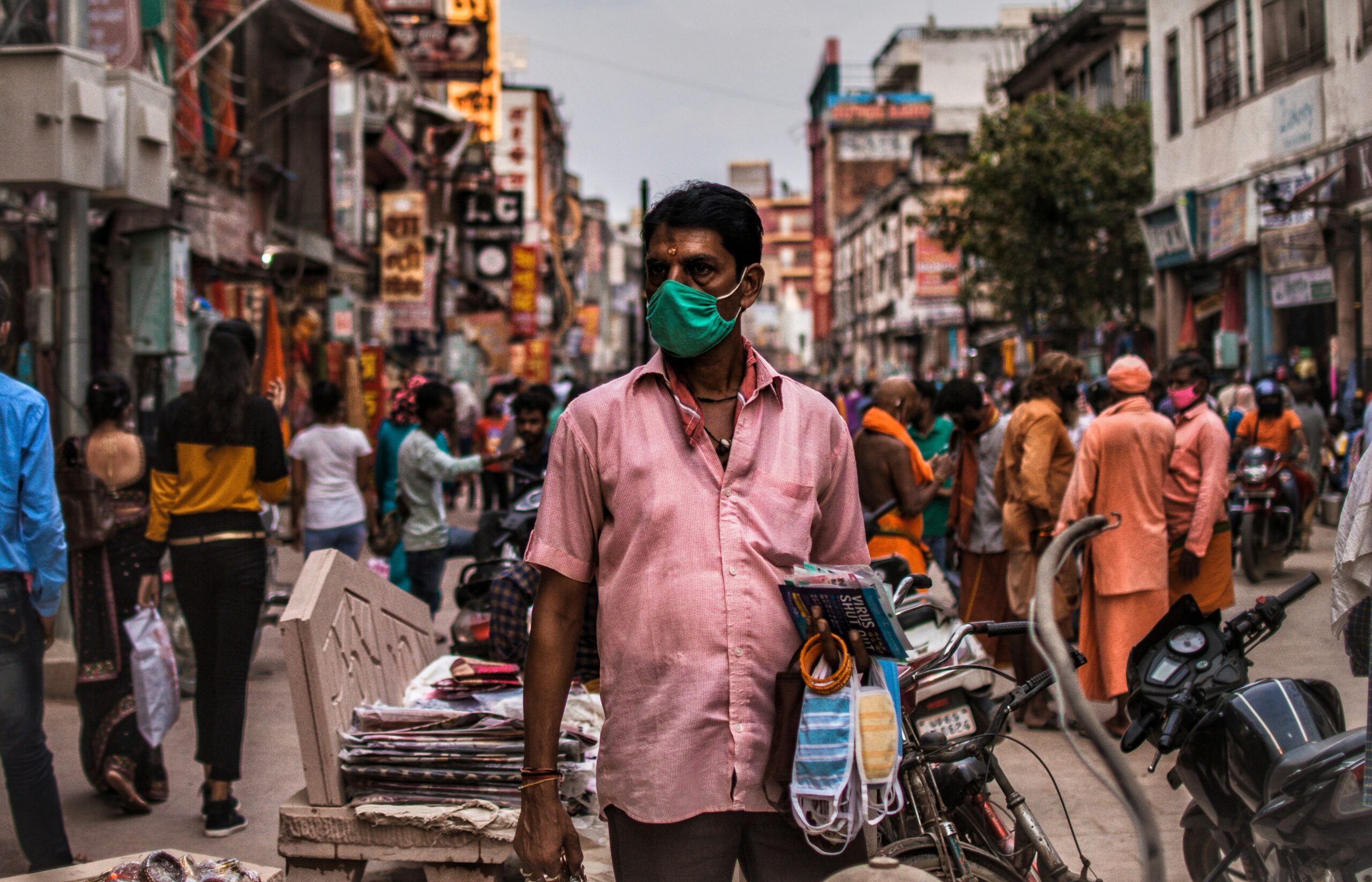
A man selling masks in the busy street of Varanasi during the pandemic. Photo by Shubhangee Vyas on Unsplash.
In light of the ravaging coronavirus pandemic in India, PM Narendra Modi announced the creation of the Prime Minister’s Citizen Assistance and Relief in Emergency Situations Fund (PM-CARES) to deal with COVID-19 and similar emergencies in the future and provide relief to those affected by them.
The initiative has received tremendous support from all quarters of Indian society including businesses, philanthropists, actors, sportspersons, government employees, and common citizens. Thousands of crore rupees have been contributed to the fund. However, it is yet unclear how the government plans to utilise the money.
PM-CARES has attracted plenty of controversy since its launch. Critics have targeted the fund’s name, calling it “self-aggrandising.” The Opposition has questioned the rationale behind setting up a separate fund when the Prime Minister’s National Relief Fund (PMNRF) already exists to tackle such situations and holds a substantial unspent amount. These criticisms aside, I want to highlight a fundamental flaw behind the idea of donating money to the government during an emergency.
My main concern with PM-CARES or any government-managed emergency relief fund is the centralisation of resources and spending authority. In a rapidly evolving situation like COVID-19 when new challenges emerge at the grassroots every day, local government administrations lack capacity and resources to effectively deal with them. By making public appeals to donate to PM-CARES, the union government is consolidating resources at the top without a plan to redistribute them where they are most urgently required. By the time it develops a mechanism for that, it may be too late.
The civil society, in my opinion, is best suited to help provide emergency relief to the affected during such emergencies. This includes non-governmental organisations (NGOs) and volunteer groups which have deep roots in the communities they serve. Such organisations usually have a better understanding of community needs compared to even local government institutions. Civil society did a better job than governments in serving people in distress during the COVID-19 lockdown in India, providing them food and shelter.
PM-CARES is attracting potential social funding for civil society organisations, limiting their ability to operate. It may be argued that without the prime minister’s passionate appeals, the society would not have donated so generously in the first place. However, he could have used his charisma for inspiring people to contribute to grassroots organisations doing good humanitarian work. If not that, at least local authorities such as district collectors could have been empowered to seek contributions for use local use.
Another concerning fact is the inefficient utilisation of corporate social responsibility (CSR) funds which forms a large chunk of the total amount donated to PM-CARES. This includes multi-hundred crore rupee contributions by many prominent corporates. Such largesse during the emergency will no doubt earn them social and political goodwill in the future. However, instead of showing genuine social stewardship in the time of a crisis, they seem to have taken an easy way out.
Instead of simply donating to PM-CARES, companies could have contributed CSR funds along with their managerial and technological expertise to NGOs solving problems on the ground. The lost opportunity is especially disappointing considering that most large corporates have access to networks of credible civil society organisations and have dedicated CSR teams in place to facilitate such engagements. Lumpsum donations to the fund are also expected to result in unavailability of grants to NGOs in the near future.
It is highly unlikely that the government will involve civil society in the utilisation of PM-CARES. India lacks a culture of public-private partnerships for social good. Even if their interests may align, governments in India are averse to partnering with the NGOs for delivering public services such as education, healthcare, and various social benefits. This is unlike many developed countries where governments at all levels work hand in hand with the civil society to tackle community-level problems effectively and efficiently.
There are various reasons for Indian governments’ aversion to partnering with civil society for public service delivery. An ingrained notion of a Mai-Baap Sarkar—a belief that the government alone is responsible for welfare of citizens—prevents governments from outsourcing the responsibility to external entities, despite their own inefficiencies. On the other hand, the NGO sector in India also suffers from an unflattering track record of corruption and misappropriation of funds. Bridging the divide between these two sectors will require establishing effective governance mechanisms to facilitate transparent collaboration.
Given these systemic flaws, what should a common citizen do to contribute during COVID-19? Donating during a crisis is a noble deed and the society’s generosity will play a big role in helping the country cope with the pandemic. However, instead of funding the government, people should consider donating to credible NGOs which have the immediate capacity to make use contributions. There are many platforms to facilitate that. For public donations, the government should be the recipient of last resort during emergencies.